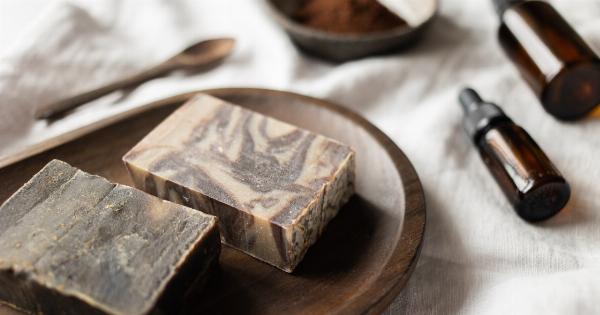Coffee is one of the most popular beverages around the world, loved for its rich aroma and flavorful taste. However, for individuals with digestive diseases, the question arises whether coffee is a friend or foe.
Digestive diseases encompass a wide range of conditions, including acid reflux, irritable bowel syndrome (IBS), and inflammatory bowel disease (IBD). In this article, we will explore the effects of coffee on these digestive diseases and whether it can help alleviate symptoms.
Understanding digestive diseases
Before delving into the relationship between coffee and digestive diseases, it is essential to understand a bit about these conditions.
Digestive diseases affect the gastrointestinal tract, which plays a crucial role in digestion and nutrient absorption.
Acid reflux, also known as gastroesophageal reflux disease (GERD), occurs when stomach acid flows back into the esophagus, causing heartburn and regurgitation.
IBS, on the other hand, is a chronic disorder characterized by abdominal pain, changes in bowel habits, and bloating. Lastly, IBD includes conditions such as Crohn’s disease and ulcerative colitis, which cause inflammation and damage to the intestines.
The impact of coffee on acid reflux
One common concern among individuals with acid reflux is whether coffee worsens their symptoms. Coffee is inherently acidic and can stimulate the production of gastric acid, potentially leading to heartburn.
Additionally, coffee contains compounds like caffeine and catechols, which can relax the lower esophageal sphincter (LES). The LES is responsible for preventing stomach acid from flowing back into the esophagus.
However, the effects of coffee on acid reflux can vary significantly among individuals. Some may experience increased symptoms after consuming coffee, while others may not notice any adverse effects.
It’s essential to pay attention to personal triggers and limit coffee intake if it exacerbates acid reflux symptoms.
Coffee and irritable bowel syndrome
Irritable bowel syndrome (IBS) is a chronic disorder that affects the large intestine and causes abdominal pain, cramping, bloating, and changes in bowel habits. Many individuals with IBS report an increased sensitivity to certain foods and beverages.
When it comes to coffee and IBS, it is crucial to consider its various components. Coffee contains caffeine, which acts as a stimulant and can affect bowel movements.
For some individuals with IBS, the caffeine in coffee can stimulate the intestines, leading to diarrhea or more frequent bowel movements.
Moreover, coffee is also known to have laxative effects, which may further exacerbate symptoms in individuals with IBS.
The combination of caffeine and the laxative effects of coffee can result in increased bowel mobility and potential discomfort for those with IBS.
Coffee and inflammatory bowel disease
Inflammatory bowel disease (IBD) comprises conditions such as Crohn’s disease and ulcerative colitis, which involve chronic inflammation of the digestive tract.
The symptoms of IBD can vary from mild to severe and often include abdominal pain, diarrhea, fatigue, and weight loss.
When it comes to coffee and IBD, there is limited research on their direct relationship. However, some studies suggest that individuals with IBD may be more susceptible to the adverse effects of coffee.
This could be due to the presence of certain compounds in coffee that can irritate the gastrointestinal lining and trigger inflammation.
Furthermore, coffee is a known stimulant and may increase intestinal motility, potentially exacerbating symptoms like diarrhea in individuals with IBD.
However, it is important to note that the effects of coffee can vary significantly among individuals, and some may not experience any negative impact.
The potential benefits of coffee for digestion
While coffee may pose challenges for individuals with digestive diseases, it also offers some potential benefits that may help alleviate symptoms.
1. Anti-inflammatory properties: Coffee contains various compounds, such as chlorogenic acid and polyphenols, which exhibit anti-inflammatory properties. These compounds may provide some relief for individuals with inflammatory conditions like IBD.
2. Increased alertness and focus: The caffeine content in coffee can help improve alertness and boost cognitive function.
This can be especially beneficial for individuals with digestive diseases who may experience fatigue and other cognitive impairments.
3. Constipation relief: Coffee’s laxative effects can help stimulate bowel movements and alleviate symptoms of constipation.
However, it is important to note that excessive consumption of coffee for this purpose may lead to dependency and disrupt natural bowel function.
Managing coffee consumption for digestive diseases
For individuals with digestive diseases, managing coffee consumption is crucial to minimize symptoms and maintain overall digestive health. Here are some tips:.
1. Know your triggers: Pay attention to how your body reacts to coffee and identify any triggers. If coffee worsens your symptoms, consider reducing or eliminating it from your diet.
2. Opt for low-acid coffee: Some coffee brands offer low-acid options that are less likely to trigger acid reflux symptoms. These may be worth exploring if you still want to enjoy coffee but have concerns about acidity.
3. Consider decaffeinated options: Decaffeinated coffee contains significantly less caffeine, which may be more tolerable for individuals with digestive diseases, particularly for those with IBS who are sensitive to caffeine.
4. Be mindful of additives: Be cautious with the addition of cream, sugar, or artificial sweeteners, as these may contribute to symptoms such as bloating and diarrhea.
5. Explore alternative options: If eliminating coffee entirely is challenging, consider exploring alternative beverages such as herbal teas or caffeine-free substitutes that provide a similar sensory experience.
Conclusion
Coffee’s impact on digestive diseases is highly individualized, and it can both aggravate and alleviate symptoms depending on the individual and the specific condition.
While coffee’s acidity and caffeine content may exacerbate symptoms for some individuals with acid reflux, IBS, or IBD, it also offers potential anti-inflammatory benefits and can provide relief for symptoms like constipation.
However, it is crucial to recognize personal triggers and listen to your body when determining whether coffee is suitable for your digestive health.
Consulting with a healthcare professional or a registered dietitian can provide personalized guidance and help navigate the relationship between coffee and your specific digestive condition.


























